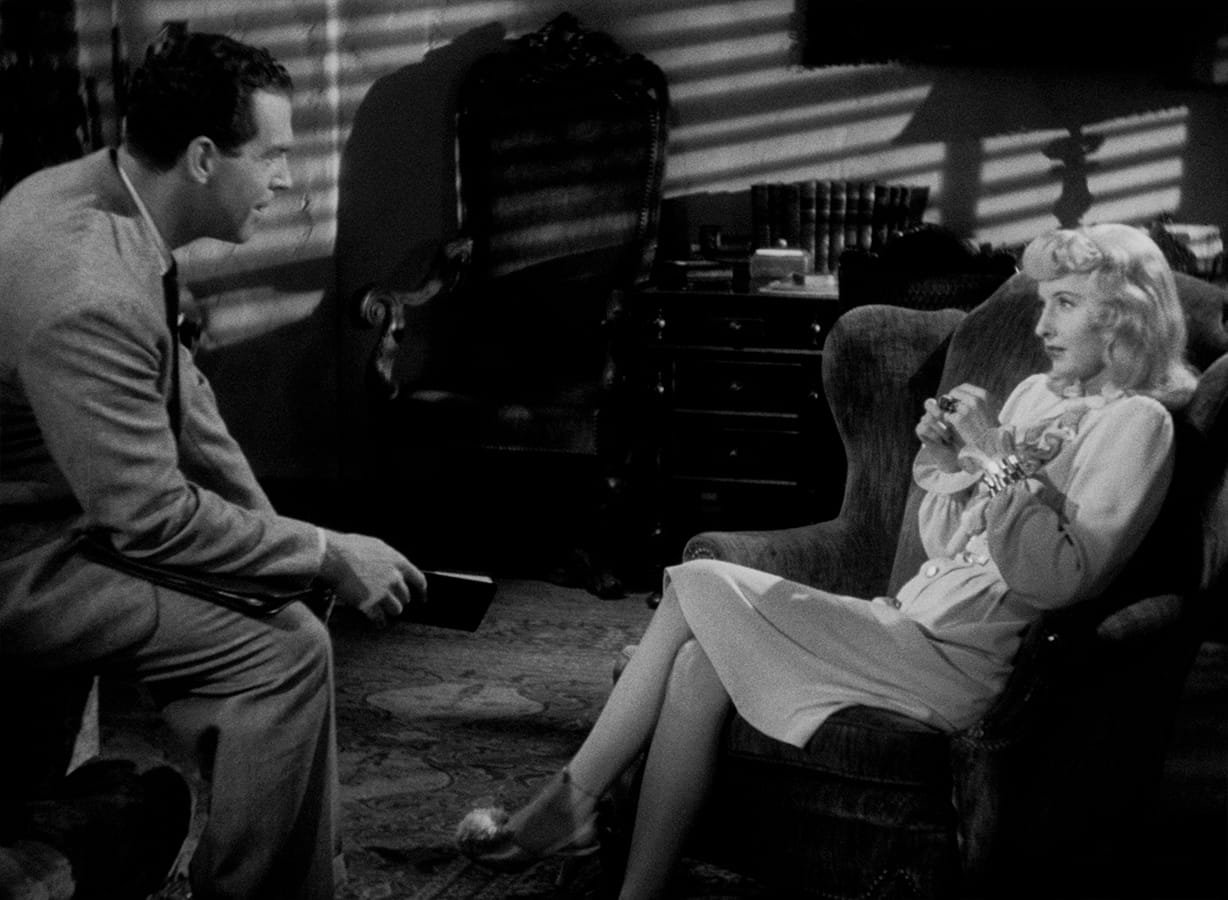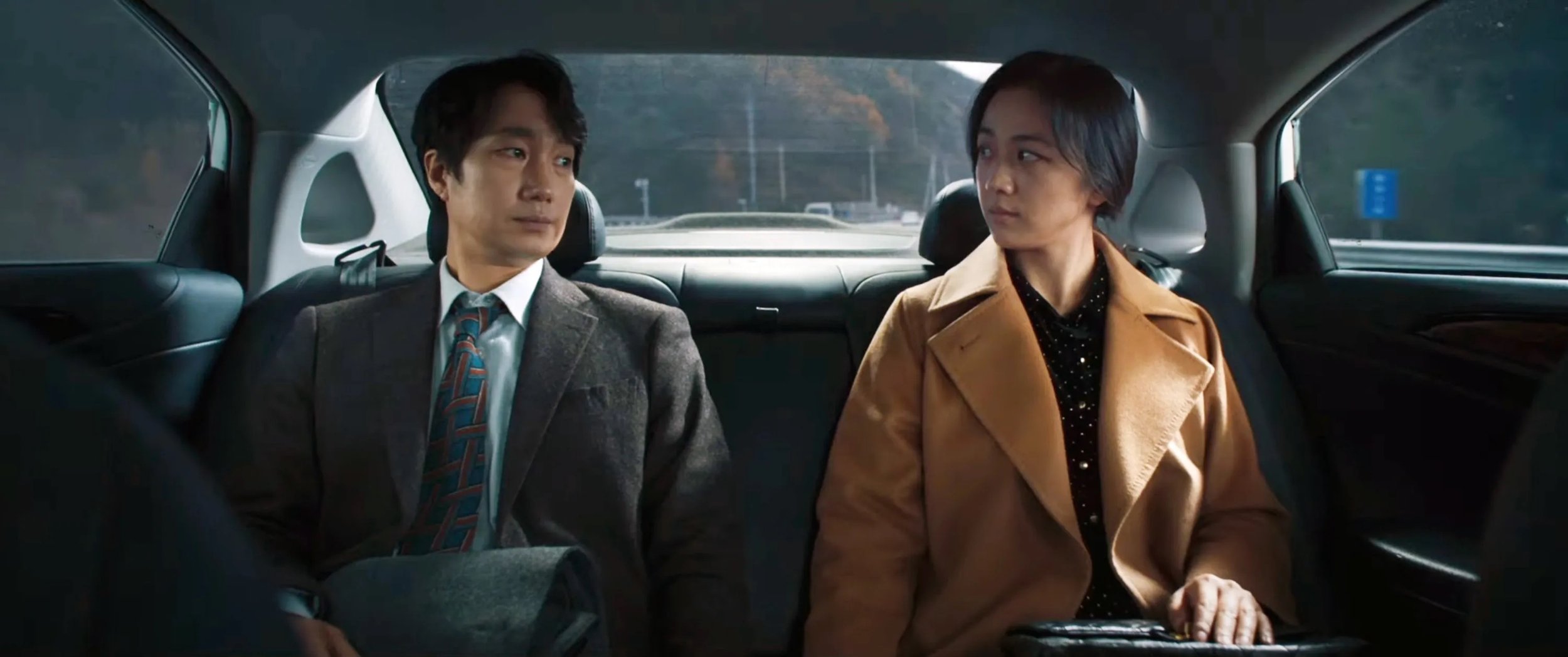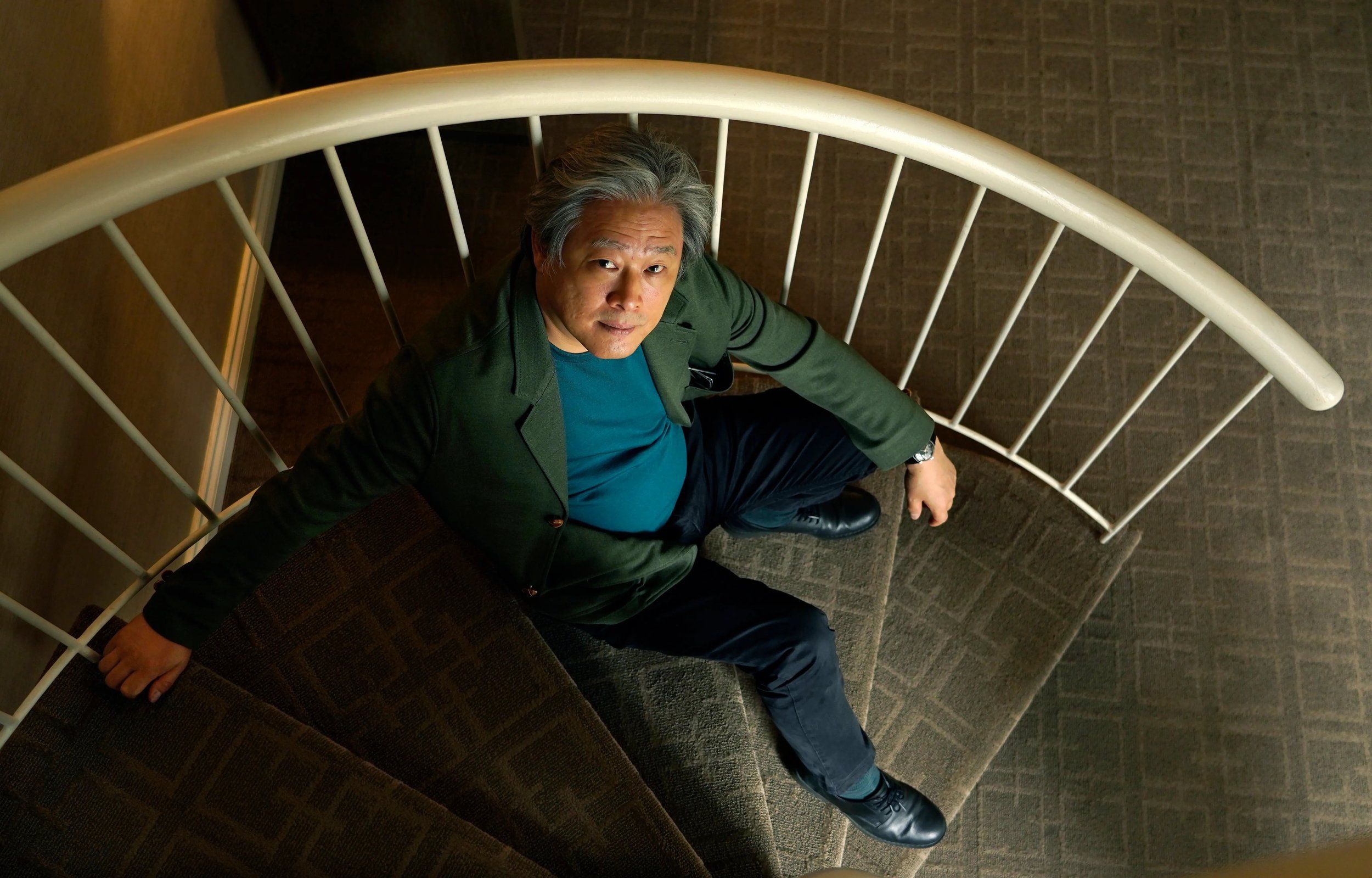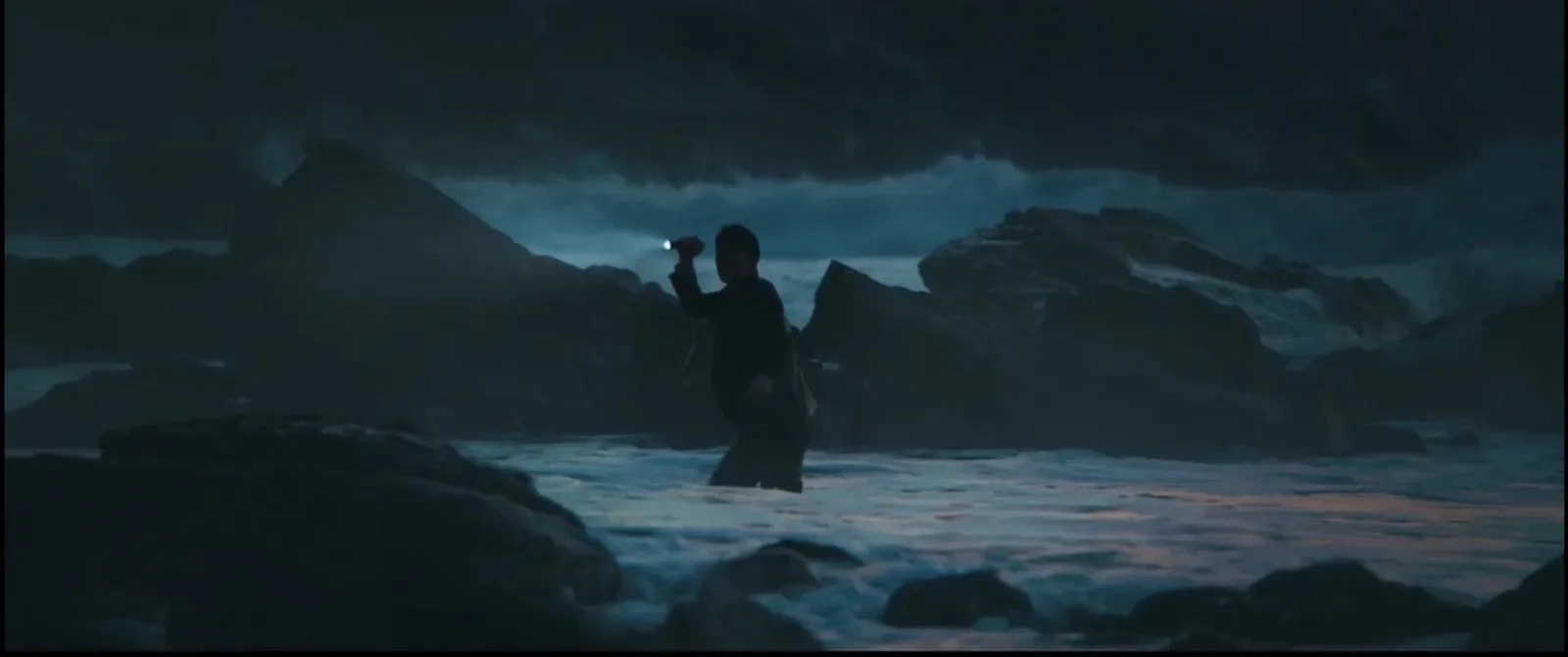
OBSESSION
LENSES OF THE MIND AND MADNESS
When interest burns too hot, it morphs into the mind consuming.
Double Indemnity (1944)
Decision to Leave (2022)
Watch Episode 2 now.

Billy Wilder is one ozf the most important and consequential writers and filmmakers in the history of Hollywood, and his filmography includes more classics than most of his contemporaries. Dialogue is one of his timeless achievements, for its rhythm, entertainment, storytelling, fun and memorability – from “Your general appearance is not distasteful” in Ninotchka (1939), to “At night this stuff's a drink. In the morning, it's medicine” from The Lost Weekend (1945), to “Nobody’s perfect!” in Some Like it Hot (1959). And Double Indemnity is no exception. At the risk of spoiling one of the best exchanges in the film, here’s an excerpt that is perfectly emblematic of Wilder’s writing chops, between bombshell Barbara Stanwyck and Wilder favorite Fred MacMurray. The latter is an insurance salesman, and the former is a bombshell looking for a little help with a modest errand – killing her husband.
A sharp summation of the male experience of obsession in this film is captured in one of Walter’s lines: “I tried to make sense out of it and got nowhere.” Of course, Walter’s example of “trying” is smoking and staring off, while Hae-joon uses his skill, network, mobility and every bit of technology he can. But the similarity is that both know the pursuit is dangerous, the woman is dangerous, the outcome is dangerous – and just keep going.
In Indemnity, a woman wants a husband dead. In Decision, a husband is already dead. For non-Korean (or Chinese) speakers, the film is not an easy breezy watch. But in a way, this is positive – there are so many details and nuances discussed and delivered via dialogue, mobile phones, instant messaging, computers and other screens, signs and letters, that make captions a godsend. You do have to dedicate a good heaping of energy and focus. Just like obsession.
Legendary director Park Chan Wook shared that Hitchcock’s classic Vertigo (1958) was an inspiration for Decision, if subconsciously. We can see it – male leads in law enforcement, rugged coastlines, interpersonal connections everyone’s mother would warn them against. It is a wonderful detour for Wook, showing his broad capabilities as an artist, as he leaves behind the violence and gore of his filmography. (The strong stomached could begin with Old Boy (2023), for a quiet, family-focused afternoon).
If we remove obsession of the physical body (which rightfully are named addictions), one of the most dangerous forms it can take is obsession over other people. In cinema, it has most often been depicted in men’s obsession over women. If we think about obsession over people as consuming interest or attachment, powerlessness and the eventual destruction or loss of the self, we are in the ballpark of the burning fires at the cores of these two films.
PHYLLIS
Mr. Neff, why don't you drop by tomorrow evening around 8:30? He'll be in then.
WALTER
Who?
PHYLLIS
My husband. You were anxious to talk to him, weren't you?
WALTER
Yes, I was. But I'm sort of getting over the idea, if you know what I mean.
PHYLLIS
There's a speed limit in this state, Mr. Neff. Forty-five miles an hour.
WALTER
How fast was I going, officer?
PHYLLIS
I'd say around ninety.
WALTER
Suppose you get down off your motorcycle and give me a ticket.
PHYLLIS
Suppose I let you off with a warning this time.
WALTER
Suppose it doesn't take.
PHYLLIS
Suppose I have to whack you over the knuckles.
WALTER
Suppose I bust out crying and put my head on your shoulder.
PHYLLIS
Suppose you try putting it on my husband's shoulder.
WALTER
(pause) That tears it.
Fred MacMurray is no equal for Stanwyck’s sexiness – but the way he could deliver lines like a machine gun is likely one of the reasons he was a frequent Wilder collaborator. Plus, bombshells burn brighter around average Joes. (For a modern remake, it’d be fun to see Ryan Reynolds sell the insurance and Blake Lively wear the anklet.)
What plays as a zippy, fun flirtation is actually the seed of obsession being planted. Intellectual connection, sometimes delivered via verbal banter, is one of nature’s finest aphrodisiacs. At this point in the film, something else is going on here as well: both characters think they are in control of the situation. Or, to put a finer point on it – the man believes he is in control, and the woman’s motive is invisible to him. This is captured beautifully, just with a lot more technology, in Decision to Leave as well.
Into this mysterious milieu enters Walter, a sarcastic insurance salesman who must be so bored, he jumps into trouble the minute it presents itself. Here are some alternate titles for the film:
We Just Met, but Sure, Let’s Kill Your Husband
I Guess Iced Tea is Fine
My Apartment is Sadder than My Clothes
I’d Rather Die than Work in Insurance
The irony is that while Phyllis clearly has the upper hand, it’s Walter who makes the first move, right into her hands, by hitting on a married woman. Decision’s Hae-joon at least seems moderately cautious, taking his time to let his obsession over Seo-rae grow (or perhaps just being forced to, by police procedure). Indemnity’s Walter wastes no time, leaping head first into risk from the first moment he meets Phyllis. (His insurance company is named “Pacific All Risk”, in case we didn’t get it.) If unhealthy interest is the first building block of obsession, powerlessness is the second.
But Walter should know better. The minute he meets Phyllis, he’s the underdog. Shot from below, she looks like a princess on a balcony. Cinematography innovator and frequent Wilder collaborator John F. Seitz is our director of photography (DP), and we see this industry-evolving talent at work. (Seitz has 18 patents to his name, for processes like the dissolve, an early 20th century classic move.) The number of different lighting setups in this classic are too complex to count, and are one of the major reasons bombshells were bombshells in those days.
What’s the difference between amateur and professional photography? Lighting and lenses. DPs of this era had far fewer tools and tricks, having to deal with lights so heavy and hot (some as much as 350 degrees) that takes were brutal on actors. In Indemnity, we’re inside, we’re outside, on staircases, in office spaces, driving, in the dark, in the light… So when we see Stanwyck shimmering, peering down through the real flecks of gold that Seitz and team used for atmosphere, we can appreciate the colossal effort of creation and endless adjustment required before she even left hair and makeup.
In tone and feeling, the two films diverge. Indemnity, while wrapped in stark black and white, is hot to the touch. You can feel the sweat and smell the smoke. Decision is cool as the East Sea, with an ice blue and charcoal palette. The psychological and emotional complexity of Phyllis and Walter doesn’t hold a candle to Seo-rae and Hae-joon, who explore each other’s psyches with patient persistence Some of the most poetic, if chilling, dialogue comes from Seo-rae in one of their scenes together: “Now you go in the sea. You go deep. You are a jellyfish. You have no eyes or nose. You have no thoughts. No joy and no sadness. You feel no emotion.” The mouse is lying down, and the cat is leading it through mindful meditation. That’s therapy Walter could have used.
And technology plays a much more central role in Decision than Indemnity. In the latter, Walker kicks things off by speaking into a dictaphone, the first of which was developed by one Alexander Graham Bell in his lab, founded in 1881. “Phones” are used to a different effect in Decision, which is another achievement of Wook’s and his team. Integrating mobile phones in film has always proved difficult, and many filmmakers eschew it altogether. But through very creative and difficult work done by DP Kim Ji-yong, we are given many different angles through which to view the story taking place. (Who hasn’t wondered what the sight line of a mobile phone would be, staring back blankly at our fixed faces?) And while the most impactful lighting may remain with Indemnity, lenses shine in Decision. Look out for a killer shot that takes “fish eye” to a new level.
While Indemnity smolders, Decision cools. How the former uses lighting, the latter uses tech. But both bring to life the glory of the noir and neo-noir genres, the power of language, and the life altering effects of all consuming obsession.
If we attempted to catalogue a filmography of films featuring obsession, like Walter, we’d get nowhere. There are just too many, across all genres. From Citizen Kane (1941) to Phantom of the Opera (1943, and 2004) to Lolita (1962) to Basic Instinct (1992) to Zodiac (2007) to Infinity Pool (2023) – the fact remains it’s a wonderful, fertile and foundational narrative idea that can drive character and story to the brink and beyond. But, if you’ll excuse me, there’s pistachio gelato in the freezer.
THERE’S A SPEED LIMIT
IN THIS STATE
Obsession is like cigarette smoke indoors: there is no stopping it from curling into every corner and settling there, soundless, and within a few minutes, invisible. And it can occur throughout all dimensions of life. Obsession with pistachio gelato is safer than obsession with power, but it’s still obsession. It can happen with nearly everything – music, film (what do you mean?), sports teams, cities, eras of history, fashion…
Some of these interests are mere passions. So what’s the difference between passion and obsession? Passions are mostly thought of as healthy pursuits. Obsession denotes something unhealthy (gelato makes you gain weight; power corrupts). Tsar Fyodor I of Russia was obsessed with church bells. Catherine de Medici was obsessed with the occult. Ulysses S. Grant was obsessed with concealing his naked body from everyone in the world. (A blessing, presumably.) In Edgar Allen Poe’s short masterpiece, The Tell-Tale Heart (1843), the narrator becomes obsessed with an old man’s eye. In advance of Ridley Scott’s Napoleon (2023), we can wonder if we’ll observe the tyrant king munching on licorice, with which he was so obsessed, his teeth turned black. (Surely a few seconds of the reported 2:38:00 runtime could be spared on this delight.)











